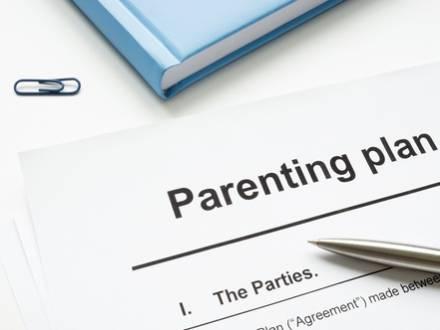Recent Blog Posts
Preparing for Your First Meeting with an Illinois Divorce Lawyer
 So you finally made the decision to get a divorce. While that is certainly a big deal on its own, it also means that you need to begin thinking about the practical side of actually making it happen. Meeting a divorce lawyer for the first time can feel overwhelming, but with the right preparation, you can make the most of your appointment. A good lawyer will help you understand your options and guide you through the divorce process. For more tailored advice, speak with an experienced Illinois divorce lawyer.
So you finally made the decision to get a divorce. While that is certainly a big deal on its own, it also means that you need to begin thinking about the practical side of actually making it happen. Meeting a divorce lawyer for the first time can feel overwhelming, but with the right preparation, you can make the most of your appointment. A good lawyer will help you understand your options and guide you through the divorce process. For more tailored advice, speak with an experienced Illinois divorce lawyer.
What to Prepare Before Meeting with a Divorce Lawyer
This meeting is an important opportunity to let someone with legal knowledge and experience review the specifics of your case and build a plan to protect your rights and interests. The lawyer will want to go over your finances and goals, and if you do not come prepared, it might feel like a waste of time. Before your first meeting, it is best to prepare the following:
Navigating Divorce as an Illinois Business Owner
 Divorce tends to be a challenging process for people to go through, whether logistically, financially, or emotionally. If you own a business in Illinois, it can be even more complicated. Your business might be one of your most valuable assets, so it is important to understand how it will be addressed in your divorce and whether it will be considered separate or marital property. If you are a business owner considering ending your marriage, consult with a qualified Arlington Heights, IL divorce lawyer to review your options.
Divorce tends to be a challenging process for people to go through, whether logistically, financially, or emotionally. If you own a business in Illinois, it can be even more complicated. Your business might be one of your most valuable assets, so it is important to understand how it will be addressed in your divorce and whether it will be considered separate or marital property. If you are a business owner considering ending your marriage, consult with a qualified Arlington Heights, IL divorce lawyer to review your options.
Is Your Business Marital or Nonmarital Property?
An important step that is necessary before you can proceed is determining whether the business you own is considered marital property or separate property.
-
Marital property includes assets and debts acquired during the marriage. If you started or grew your business during your marriage, there is a good likelihood that a judge would consider it marital property, even if you are the only person listed as the owner and your spouse is not involved.
Is Uncontested Divorce Possible for High-Asset Couples?
 Divorce is never easy, but it can become even more complicated when significant assets are involved. For people with substantial investments, real estate, financial holdings, or other assets, the divorce process can be lengthy and difficult. However, if both spouses agree about the major issues without needing a trial, couples can have an uncontested divorce. Speak with an experienced Arlington Heights, IL divorce lawyer to understand whether uncontested divorce is an option for you.
Divorce is never easy, but it can become even more complicated when significant assets are involved. For people with substantial investments, real estate, financial holdings, or other assets, the divorce process can be lengthy and difficult. However, if both spouses agree about the major issues without needing a trial, couples can have an uncontested divorce. Speak with an experienced Arlington Heights, IL divorce lawyer to understand whether uncontested divorce is an option for you.
What is an Uncontested Divorce?
When both spouses can agree on all the important aspects of the divorce that need to be resolved in the settlement, they can have an uncontested divorce. Uncontested divorce is typically faster, less expensive, and less stressful than contested divorces. The couple needs to draft a divorce agreement that is acceptable to both of them and addresses everything, including:
Birdnesting: A Creative Solution for Divorced Parents in Illinois
 When parents divorce, one of the hardest parts for them to figure out can be how to collaborate to raise and care for their children after they are separated. A growing trend called birdnesting offers a creative solution. Birdnesting means that the children stay in one home, while the parents take turns living in that home. This arrangement can be challenging and uncomfortable for some, so it is crucial to examine your dynamics with your ex before attempting it. However, if it can work for you, birdnesting can be an excellent way for families to address the emotional and practical challenges of divorce. Speak with a knowledgeable Arlington Heights, IL divorce lawyer to learn more.
When parents divorce, one of the hardest parts for them to figure out can be how to collaborate to raise and care for their children after they are separated. A growing trend called birdnesting offers a creative solution. Birdnesting means that the children stay in one home, while the parents take turns living in that home. This arrangement can be challenging and uncomfortable for some, so it is crucial to examine your dynamics with your ex before attempting it. However, if it can work for you, birdnesting can be an excellent way for families to address the emotional and practical challenges of divorce. Speak with a knowledgeable Arlington Heights, IL divorce lawyer to learn more.
What is Birdnesting?
In a typical divorce, children need to adjust to living in two different homes — one with each parent. This means moving back and forth between homes and adjusting to different rules and routines, which can be challenging.
How Can I Prove My Spouse Is Wasting Our Marital Assets?
 When couples go through a divorce in Illinois, they need to divide their marital assets in an equitable way. That means that the value of all their property, assets, and debts is calculated and then anything they own as a couple will be divided fairly between both spouses.
When couples go through a divorce in Illinois, they need to divide their marital assets in an equitable way. That means that the value of all their property, assets, and debts is calculated and then anything they own as a couple will be divided fairly between both spouses.
Unfortunately, some spouses have been known to spend and waste assets in such a way that the total amount that will be divided is significantly less than it should be. This is known as the dissipation of assets, and it can have serious legal consequences. If you are worried your spouse is squandering your marital assets and you will be left with much less than you deserve after your divorce, speak with a skilled Illinois family law attorney to learn about your options.
How Is the Dissipation of Assets Defined?
Illinois law defines the dissipation of assets as "the use of marital property for a purpose unrelated to the marriage at a time when the marriage is undergoing an irretrievable breakdown." Irretrievable breakdown means it is clear that the marriage is ending. The divorce is not yet finalized, which is why the assets have not yet been divided, but the spouses know that the divorce is happening.
What Is Included in an Illinois Parenting Plan?
 When parents get divorced, one of the most important tasks they need to accomplish is creating a parenting plan. This outlines how they will continue raising their children once their marriage is over. It includes details about who will pay for what, who will make certain decisions on behalf of the child, where the child will sleep, and more.
When parents get divorced, one of the most important tasks they need to accomplish is creating a parenting plan. This outlines how they will continue raising their children once their marriage is over. It includes details about who will pay for what, who will make certain decisions on behalf of the child, where the child will sleep, and more.
Most parents want to make sure their child’s best interests are being met, but it can be hard to prioritize that when you are in the process of getting a divorce. If you want to learn more about successful methods for creating a parenting plan, speak with an experienced Arlington Heights, IL divorce lawyer.
What Is a Parenting Plan?
"Parenting plan" is the term for the guidelines of how co-parents share parental responsibilities and rights after a divorce. It helps parents navigate complex issues that can come up when unmarried parents try to raise a child. The key components include:
I Want a Divorce. How Long Will It Take in Illinois?
 It can take a couple a long time to conclude that the only path forward for them is divorce. After years of trying to make it work, going through couples or individual therapy, reading books and listening to podcasts by relationship experts, and living through an unhappy marriage, some people might feel impatient to put this all behind them once they are ready to split up. Many wonder how long a divorce takes to finalize. The answer is that it depends on several factors, including what the couple needs to divide, how the spouses communicate, and which divorce method they choose. This article will describe the more common options for divorce in Illinois and how long you can expect each to take. Consult with a knowledgeable Arlington Heights, IL divorce lawyer to learn more.
It can take a couple a long time to conclude that the only path forward for them is divorce. After years of trying to make it work, going through couples or individual therapy, reading books and listening to podcasts by relationship experts, and living through an unhappy marriage, some people might feel impatient to put this all behind them once they are ready to split up. Many wonder how long a divorce takes to finalize. The answer is that it depends on several factors, including what the couple needs to divide, how the spouses communicate, and which divorce method they choose. This article will describe the more common options for divorce in Illinois and how long you can expect each to take. Consult with a knowledgeable Arlington Heights, IL divorce lawyer to learn more.
5 Types of Divorce Explained
Different types of divorce appeal to different couples based on factors such as the dynamics between the spouses, the marital estate that needs to be divided, whether they have children and more.
Can a Father Receive Child Support in Illinois?
 According to Illinois law, both parents of any child have a presumption of equal parenting rights and responsibilities. The courts decide on a case-by-case basis how matters like visitation and parental decision-making will be divided, and consider many factors to determine which arrangement would best suit the child’s interests.
According to Illinois law, both parents of any child have a presumption of equal parenting rights and responsibilities. The courts decide on a case-by-case basis how matters like visitation and parental decision-making will be divided, and consider many factors to determine which arrangement would best suit the child’s interests.
However, there is no gender-based automatic rule that mothers always get more time with the child and should always receive child support instead of fathers. If you are a father seeking maximum parenting time with your child, speak with an experienced Arlington Heights, IL child custody attorney about whether you could be eligible for child support payments within the framework of your divorce settlement.
Parental Eligibility for Child Support
While America has come a long way in terms of gender roles and the awareness of parental capabilities, there are still some societal norms and taboos surrounding the division of responsibilities inside a household. In practice, many families do not fit the outdated model of a mother staying home and raising the children while the father goes off to work and spends minimal time actively parenting. In some families, the mother is the main breadwinner, and the father takes on most parental responsibilities. In some divorces, fathers are awarded primary custody and are also entitled to child support.
How Can I Prove a Man is My Child’s Father? | IL
 When married couples have a baby, the husband and wife are automatically considered the father and mother, with all the parental rights and obligations that brings. However, when a couple is not married when a baby is born, it is less clear-cut. The woman giving birth is automatically considered the mother, but officially recognizing a father requires various steps.
When married couples have a baby, the husband and wife are automatically considered the father and mother, with all the parental rights and obligations that brings. However, when a couple is not married when a baby is born, it is less clear-cut. The woman giving birth is automatically considered the mother, but officially recognizing a father requires various steps.
What you need to do, exactly, will depend on your circumstances and whether the man you believe is your child’s father is willing to cooperate. If your baby’s father refuses to acknowledge paternity, speak with a qualified Arlington Heights, IL family law attorney about how to prove it.
Establishing Paternity in Illinois
When both unmarried parents acknowledge their parental relationships, they can fill out a form called a Voluntary Acknowledgement of Paternity (VAP). Sometimes it takes time for the parents to get this done and they can submit it at any time, but if they fill it out in the hospital when the baby is born, the father’s name can be included alongside the mother’s on the birth certificate. This is a fairly simple process, with one major condition: it needs to be voluntary. If either parent does not want the father to be recognized as such, they cannot be forced to sign it against their will.
Can I Insist on a Psychological Evaluation in My Illinois Divorce?
 Custody battles can take a toll on a family. However, sometimes, one parent fights for as much time as possible because they truly believe the other parent cannot provide a safe and healthy environment. If your spouse has a history of mental illness, substance abuse, addiction, or some other issue preventing them from raising your child in a way that suits their best interests, speak with a dedicated Arlington Heights, IL divorce lawyer about requesting a court-ordered psychological evaluation.
Custody battles can take a toll on a family. However, sometimes, one parent fights for as much time as possible because they truly believe the other parent cannot provide a safe and healthy environment. If your spouse has a history of mental illness, substance abuse, addiction, or some other issue preventing them from raising your child in a way that suits their best interests, speak with a dedicated Arlington Heights, IL divorce lawyer about requesting a court-ordered psychological evaluation.
How is a Psychological Evaluation Requested?
If there is any concern about a child being placed in a harmful situation with an unfit parent, a psychological evaluation can be ordered to help the court determine whether the concerns are valid. These evaluations can be requested in one of two ways:

















